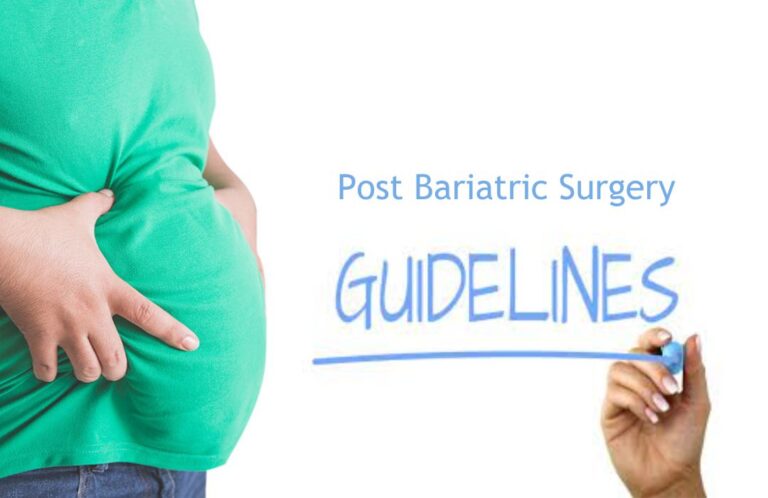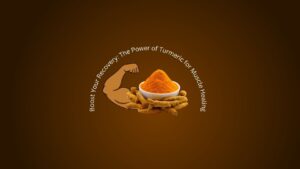
Vidhi Dave
Bariatric Dietician & Content Writer
Guidelines Post-Bariatric Surgery - Aastha Bariatrics

Many different kinds of weight-loss surgeries are grouped under the umbrella term “bariatric surgery,” which is simply a generic word. The patient’s digestive tract is altered throughout these procedures in order to facilitate weight loss. They either reduce the amount of food you are able to consume or their ability to absorb nutrition, or in some situations, both.
Let’s look at the science behind it.
A BMI of 25 is considered normal. Diet will assist them in maintaining their weight or losing 3-4 kg.
Someone with a BMI between 25 and 29.9. For him/her Diet and extras such as exercise, drugs, herbalife, and others will aid in weight loss. It helps in achieving weight loss of 10-12 kg.
But someone whose BMI is more than 30. He/ She falls is considered as obese. For them bariatric surgery is the only line of treatment. If he or she attempts to reduce weight through diet, physical activity, or medicines, he or she will lose weight but gain it all back.
Post Surgery Diet & Guidelines:
Post- bariatric surgery, patients are frequently given a diet to follow that is divided into 3 phases. The first few days following surgery are usually spent letting your body repair and recover, even though it is usually advised to start a liquid diet right away.
Clear Liquids: This lasts for around 2 to 3 weeks. Transparent, easily digestible liquids make up clear liquid food. This phase usually begins right after following surgery and lasts for a few days for better recovery.
Pureed Food: Once the patient has completed the liquid phase, you will start adding soft, pureed foods to your diet two to three weeks later. Mashed, squashed, or soft foods that are thicker than liquid are called pureed foods. To prevent any potential discomfort or issues, it is crucial to make sure that foods are thoroughly blended and free of any lumps or chunks. Eg: Mashed Dal rice, Mashed khichdi, Vegetable smoothie, etc.
Soft food: The phase after pureed is the soft phase, these phase also last for 2-3 weeks. The foods in this phase have a little bit more texture than pureed foods but are still simple to chew and absorb. Eg Khichdi, Besan chilla, Moong dal chilla, Grilled/ Steamed/ Baked Chicken and Fish, etc.
When it comes to Bariatric Surgery, the patient must adhere to certain rules, like.
How is it detected ?
Nutritional Recommendation:
Your food is going to be one of the most important areas of your life after you’ve had bariatric surgery. You will need to make some changes to the way that you normally eat in order to get the best possible results.
Learn how to adapt your eating habits to each new phase of your diet by first familiarizing yourself with the progression from liquid to solid foods.
Controlling Portions: If you want to keep the weight off, you need to master the art of mindful eating and portion control.
Learn how to include important nutrients while keeping your calorie consumption under control
Every meal should be chewed properly and should take proper 40-45 mins to eat. The gap between two meals should not exceed more than 2-3 hours.
Working on Your Strength and Endurance Through Exercise and Physical Activity
After surgery, you will benefit greatly from engaging in activities that get your body moving.
Types of Exercise: Determine which types of physical activity are appropriate for your current level of fitness and personal preferences.
To get started slowly, you need to educate yourself on how to progressively add physical activity into your daily routine.
As advised by your dietician and bariatric surgeon, gradually increase your physical activity. Begin with easy exercises like quick walks and work up to more challenging ones gradually. Regular exercise can help with weight loss, boost cardiovascular health, and improve general well being.
Understanding the impact that exercise plays in both maintaining weight loss and enhancing general health is beneficial over the long term.
Supplementation / Medications:
After bariatric surgery, you might need to take certain supplements in order to satisfy the nutritional demands of your new body. We are going to go over:
Understanding the Necessary Vitamins and Minerals It is important to have an understanding of the necessary vitamins and minerals and how to ensure that you acquire them.
MultiVitamins are commonly advised to take after having bariatric surgery.
Follow your bariatric surgeon’s instructions when taking any recommended medications. This could involve prescription painkillers, medicines to avoid blood clots, or specialized supplements like vitamins and minerals.
Make sure to keep all advised follow-up meetings with your nutritionist and bariatric surgeon. These appointments enable your progress to be tracked, any issues to be addressed, and required modifications to your post-surgery plan to be made.
Foods that should be avoided:
Some foods increase the likelihood of complications following gastric sleeve surgery and other bariatric treatments. As a result, patients should avoid particular foods and beverages to lessen the likelihood of an adverse outcome.
Calories Dense Foods: Consuming foods that are heavy in fat should be avoided because these foods are difficult to digest, which can cause discomfort and even gastrointestinal disorders. This includes foods like chips and pastries, as well as fried dishes, fatty cuts of meat, cream-based dairy products, and fatty snacks like chips.
Sugary foods and drinks: Sugary foods and drinks should be limited or avoided entirely because they are linked to weight gain and, in extremely rare cases, dumping syndrome. This includes beverages with added sugar, confections, baked goods, ice cream, and any other sugar-based indulgences.
Carbonated Beverages: Drinking carbonated beverages like soda and sparkling water might give you a bloated, unpleasant, and gassy feeling. To stay clear of these issues, it is best to steer clear of them entirely or to consume them in a measured amount.
Alcohol: After having bariatric surgery, it is generally recommended to stay away from drinking alcohol entirely or to take it in moderation. Alcohol consumption results in an increase in the risk of dehydration, inhibits the absorption of nutrients, and increases the likelihood that it will interact negatively with drugs.
Caffeine: Although a small amount of caffeine may be suitable for certain individuals, it is essential to exercise extreme caution when consuming caffeine because it has the potential to induce dehydration and stomach irritation. You should discuss your intentions to consume coffee after surgery with your healthcare providers.
Even after years of bariatric surgery the above guidelines should be followed. Gradually the portion might increase but if the guidelines are being followed properly it will help to maintain the weight in the long run.
One of Ayurveda’s golden eating rules is to chew each bite of food 32 times. (It’s the first step in your digestive process) Chewing properly also encourages you to eat more slowly and mindfully.
Chewing your food well makes you focus on your food which prevents overeating, thus, preventing obesity.
The stomach receives 30-40 percent of liquified food which in turn takes less time to digest the nutrient-dense food.
You tend to feel fuller for a longer time as compared to when eating at a fast pace.
It enhances your overall nourishment and promotes a healthy lifestyle.
Chewing food into smaller bits can prevent you from feeling drowsy after eating meals.
At Aastha Bariatric, we provide our patients with comprehensive information about bariatric surgery, including its risks, benefits, the recovery process, and what they can expect post-surgery. Our commitment is to be compassionate, patient, available, informative, and supportive advocates for our patients throughout their bariatric surgery journey.






